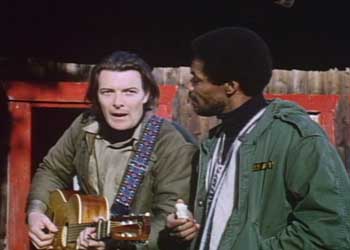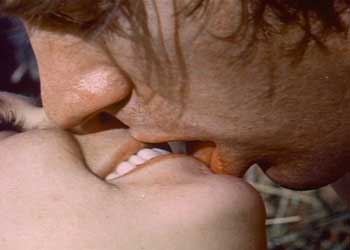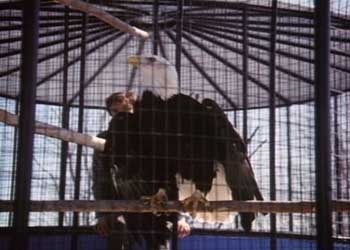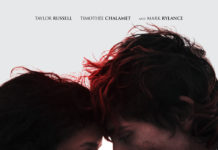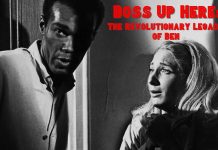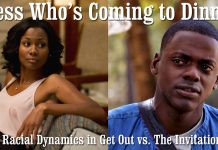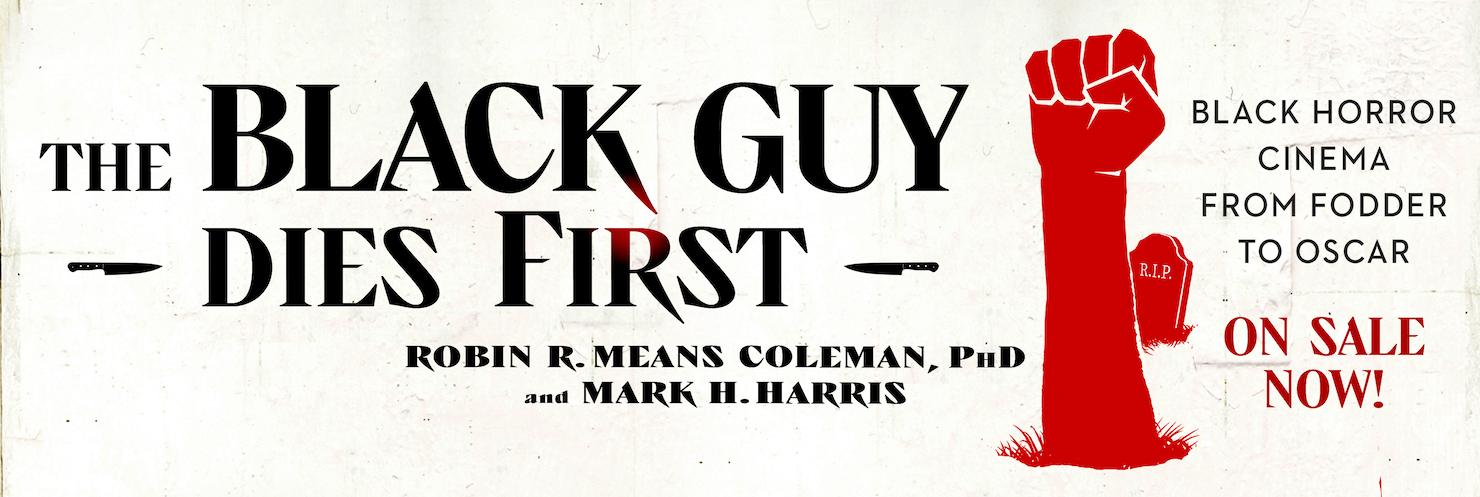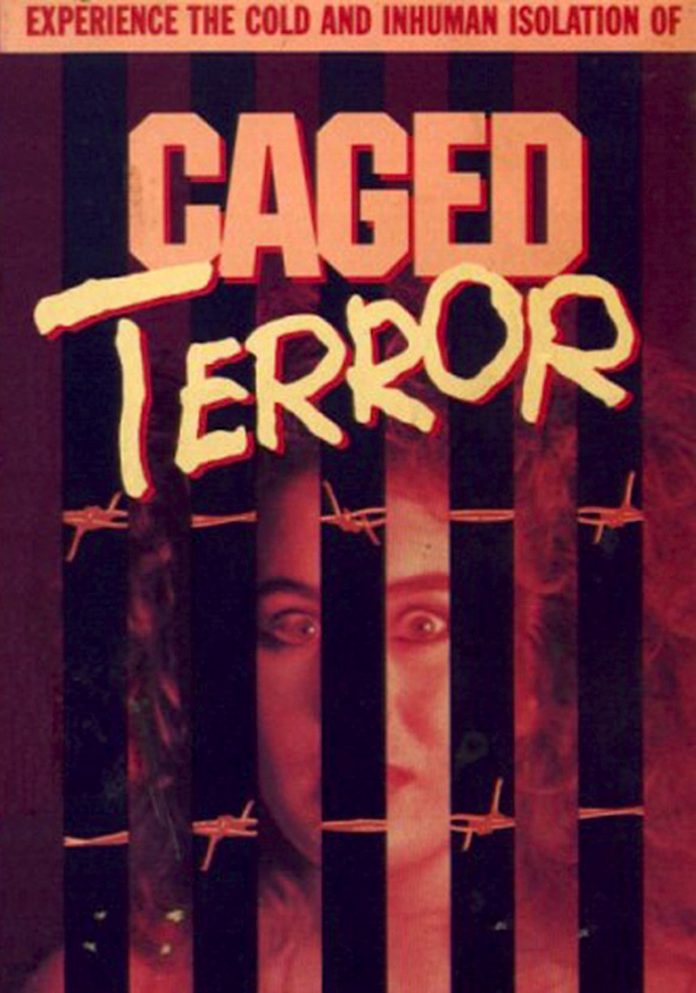Caged Terror stands as a towering testament to why kids should say no to drugs and why hippies should say no to filmmaking. I’m not sure how this movie was promoted when it was released, but it could hardly be considered horror, and it’s only marginally a (very tame) exploitation film. The alternate title Golden Apples of the Sun is more reflective of the flowery content than Caged Terror. The basic plot certainly sounds like typical sleazy exploitation fare — a couple camping in the woods is tormented by a pair of shady Vietnam vets (the leader of whom [Leon Morenzie] is black, making it pretty unique in the realm of kidnap/torture/revenge flicks) — but the execution is another story.
First of all, the lovers (as they were called back in the ’70s), Janet (Elizabeth Suzuki) and Richard (Percy Harkness), are shown camping…IN REAL TIME. Fans of the TV show 24 may have become spoiled, fooled into believing that a lot of crazy shit happens, like, every 5 to 7 minutes of the day, but Caged Terror brings us back to the thudding reality that life is mostly boring as hell. We get to see the couple walk through the woods, sit in the grass, fish in the stream, walk some more, sit around a bit, look at the sky, eat some fruit and maybe sit some more, all while uttering maybe eight lines of dialogue in 12 minutes’ time. Check out this crucial scene, for instance:
Janet and Richard crouch beside a pond. Richard is tossing stones into the water. Janet picks up a feather and holds it up to Richard’s face.
Janet: You lost a feather.
Richard: It’s the wing feather of a wood cock.
Fin.
I’m sure this is somehow the filmmakers’ attempt to show the beauty of the forest, but if we loved the outdoors so much, why would we be watching a movie? This film actually made me hate nature just a bit.
Then, presumably to strengthen our love of nature and life in general, the couple converses about “deep” topics with highfalutin sincerity like, “Do you remember what Krishna said to Arjuna on the battlefield? ‘The killer and the killed are one,’ or “Sometimes I think that your life is made up of as many little compartments as this pomegranate,” or my personal favorite, “Beauty does sweep on cruelly; it’s the action, the flow, that gives us grace.” Damn hippies. Who eats pomegranates anyway? Even the film’s alternate title, culled from the W.B. Yeats poem “The Song of Wandering Aengus,” oozes pretension.
Where Caged Terror really delivers the unexpected, though, is when the two ex-soldiers show up. They approach the couple, who have taken residence in an abandoned lodge, with the type of unnerving faux politeness that movie baddies tend to use before they make you squeal like a pig. They even inform the lovers that they had been staying in the house, setting up all the more reason for them to attack. But they don’t. They stay, eat and even sing a freakin’ folk song (damn hippies) before leaving.
Later that night, Richard awakes to the sound of the vets yelling and having fun by campfire several hundred feet away. Annoyed, he doesn’t bother just telling them to keep it down; no, he picks up a rifle and fires at them. So, unlike most of these types of films, the victim is the one who sets it off. Richard, it turns out, is a jerk for not respecting nature (he kills some fish and a rabbit earlier in the movie) and for being so territorial. Plus, he’s a lousy shot.
The soldiers catch him and tie him up in a huge cage (The irony of a black man holding a white man captive and shouting, “Get a rope!” is not lost on me.), where the less-than-terrifying “terror” occurs: he’s forced to watch a black man cuddle with his wife. That’s right; I said it: CUDDLING. There’s some hot and heavy interracial spooning going on, and boy is it traumatic. At least, to Richard. Janet doesn’t seem to mind at all. In fact, the next morning, she’s seen from a distance having a casual talk with the men (something like, “Thanks for the non-sexual intimacy.”) before they stroll off into the sunrise. Damn hippies.

